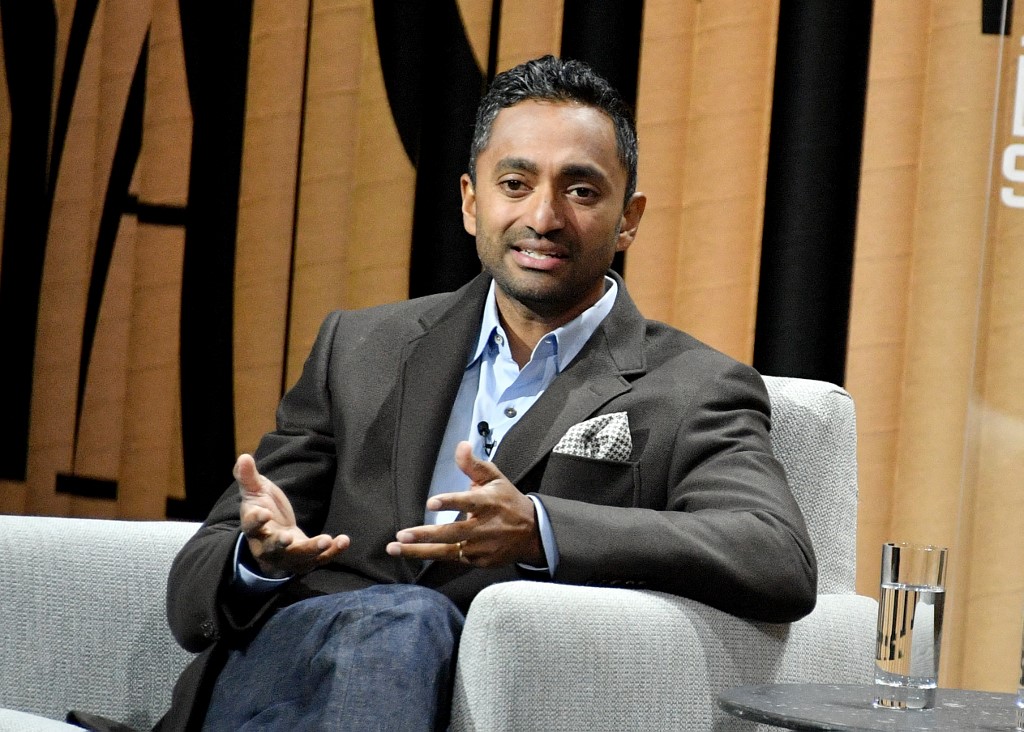
Founder/CEO of Social Capital, Chamath Palihapitiya, speaks onstage during the Vanity Fair New Establishment Summit at Yerba Buena Center for the Arts on October 19, 2016 in San Francisco, California. Mike Windle/Getty Images for Vanity Fair/AFP
The Golden State Warriors have distanced themselves from executive board member Chamath Palihapitiya, after he repeatedly said he did not care “about what’s happening to the Uyghurs” on a podcast.
“As a limited investor who has no day-to-day operating functions with the Warriors, Mr Palihapitiya does not speak on behalf of our franchise, and his views certainly don’t reflect those of our organization,” the San Francisco team said Monday on Twitter.
Rights experts, witnesses and the US government have said that more than one million Uyghurs and other Turkic-speaking Muslims are incarcerated in camps in China’s Xinjiang province.
Warriors statement re: Chamath Palihapitiya: pic.twitter.com/zUl6i9sOve
— Warriors PR (@WarriorsPR) January 17, 2022
Beijing describes the sites as vocational training centers and has said that, like many Western nations, it is seeking to counter radical Islamic terrorism.
But the United States has described the campaign as genocide and, along with Australia, Britain and Canada, has planned a diplomatic boycott of the Beijing Winter Games over the issue.
Palihapitiya was discussing US-China policy on his All-In Podcast when he made the comments.
In response to a co-host commenting on the Biden administration’s position on Xinjiang, he responded: “Let’s be honest, no one cares about what’s happening to the Uyghurs.”
“You bring it up… the rest of us don’t care,” he continued.
When challenged by his co-hosts, he doubled down.
“I care about the fact that our economy could turn on a dime, if China invades Taiwan,” he said.
When @NBA says we stand for justice, don’t forget there are those who sell their soul for money & business like @chamath the owner of @warriors,
who says “Nobody cares about what’s happening to the Uyghurs”When genocides happen, it is people
like this that let it happenShame! pic.twitter.com/27j2GxGhCU
— Enes FREEDOM (@EnesFreedom) January 17, 2022
“But if you’re asking me do I care about a segment of a class of people in another country — not until we can take care of ourselves, will I prioritize them over us.”
Palihapitiya has since said he had appeared to be “lacking empathy.”
“To be clear, my belief is that human rights matter, whether in China, the United States, or elsewhere,” he wrote on Twitter.
China has a record of freezing out sports personalities, teams and organizations critical of Beijing.
The NBA has not been shown on state broadcaster CCTV since a Houston Rockets chief executive tweeted his support for Hong Kong’s democracy movement more than two years ago.
Streaming service Tencent stopped showing games involving the Boston Celtics after their player Enes Kanter branded President Xi Jinping a “brutal dictator” and condemned Beijing’s policies in Tibet.
Kanter tweeted a clip of Palihapitiya’s comments, writing: “When genocides happen, it is people like this that let it happen. Shame!”